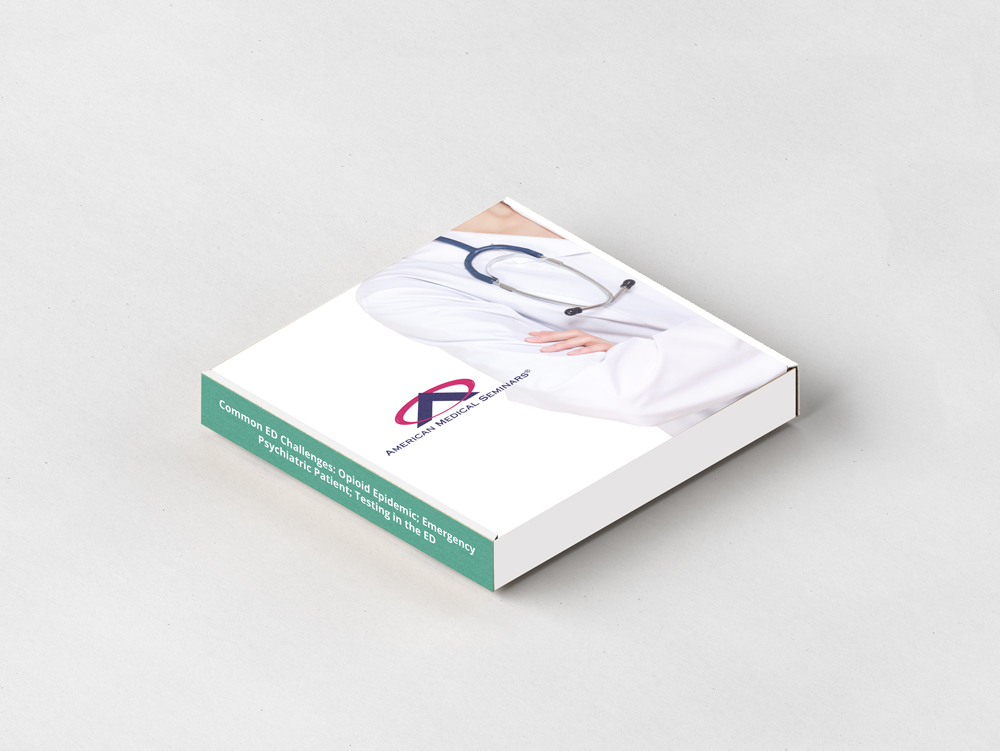Product Description
Title: Emergency Medicine – Common ED Challenges: Opioid Epidemic; Psychiatric Patient; Testing in the ED
Faculty: Andrew Chang, M.D., M.S., F.A.C.E.P., F.A.A.E.M., Joel Kravitz, M.D., F.A.C.E.P., F.R.C.P.S.C.
Original Release Date: July 1, 2019 Expiration Date: July 1, 2022
TOPIC 1: The Opioid Epidemic: How We Got Here and How We’re Going to Dig Ourselves Out.
Upon completion of this session, the participant should be able to: GL, COMP
- Differentiate EKG findings for atrial fibrillation, atrial flutter, paroxysmal supraventricular tachycardia, and Wolf-Parkinson-White syndrome.
- Specify the factors determining the seriousness of any tachycardia.
- Utilize current effective and approved therapies to treat various supraventricular tachycardias as per the sited systemic reviews and ACC guidelines.
TOPIC 2: Management of the Emergency Psychiatric Patient.
Upon completion of this session, the participant should be able to: GL, COMP
- Recognize the early signs of agitation and employ strategies to resolve them.
- Select appropriate agents for chemical restraint based on available evidence.
- Using ACEP guidelines as a framework develop a plan for the medical clearance of a psychiatric patient.
TOPIC 3: Is This Test Necessary: Efficient Use of Testing in the Emergency Department.
Upon completion of this session, the participant should be able to: GL, COMP
- Develop, using the available evidence, efficient decision making skills for the use of some commonly used lab & radiographic tests in the ED as per the COC guidance and recommendations.
- Determine the utility of some less commonly used tests in the ED, including strep tests, D-dimers and coagulation tests.
- Evaluate case scenarios to discuss optimizing patient care while reducing unnecessary costs.
- The receipt for any incentive-associated purchase will designate the value of the gift card separately from the cost of the learning activity.
- This incentive may have implications on your tax reporting obligations. Any reimbursed amount must be declared as personal income for tax purposes.


